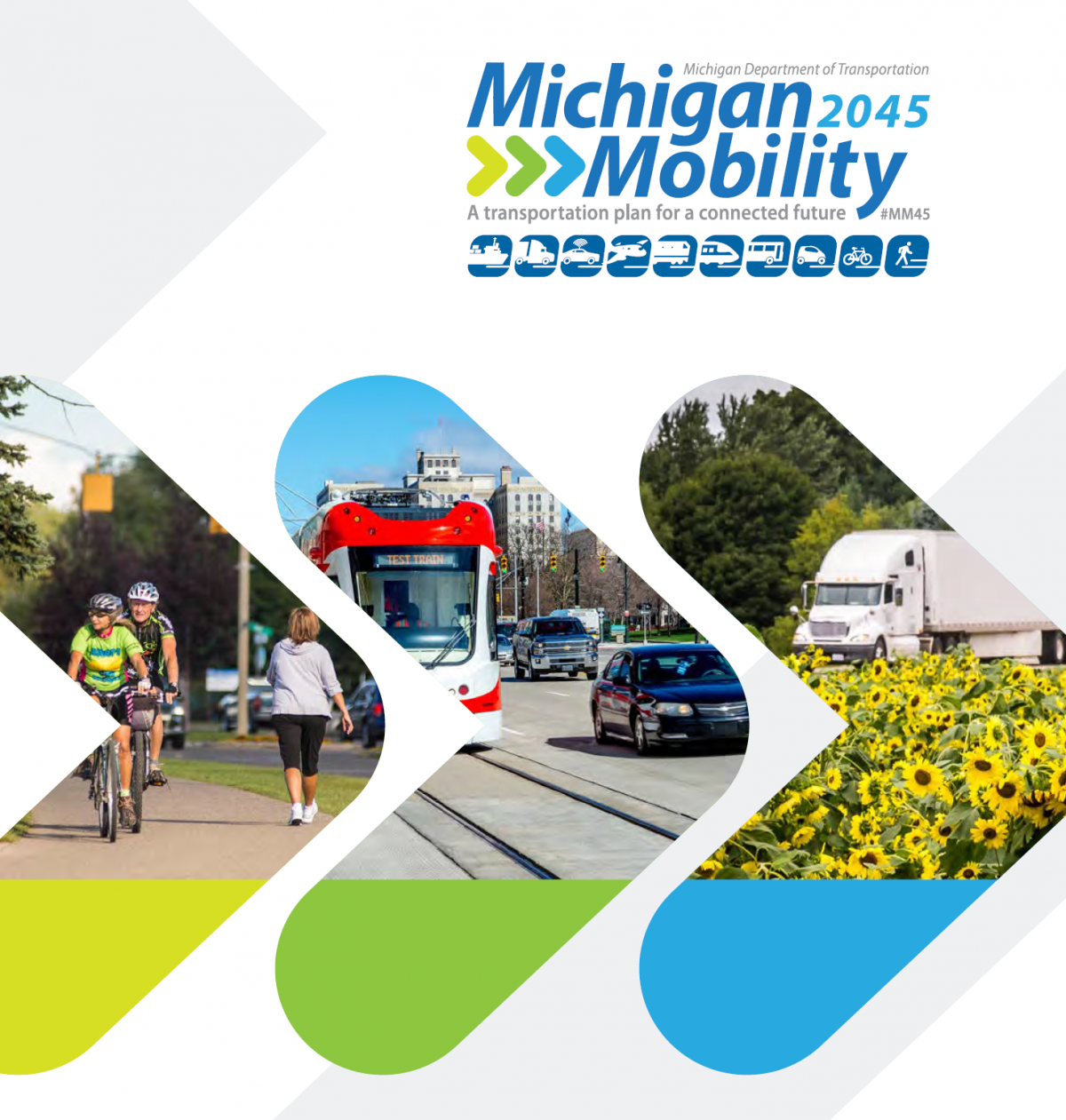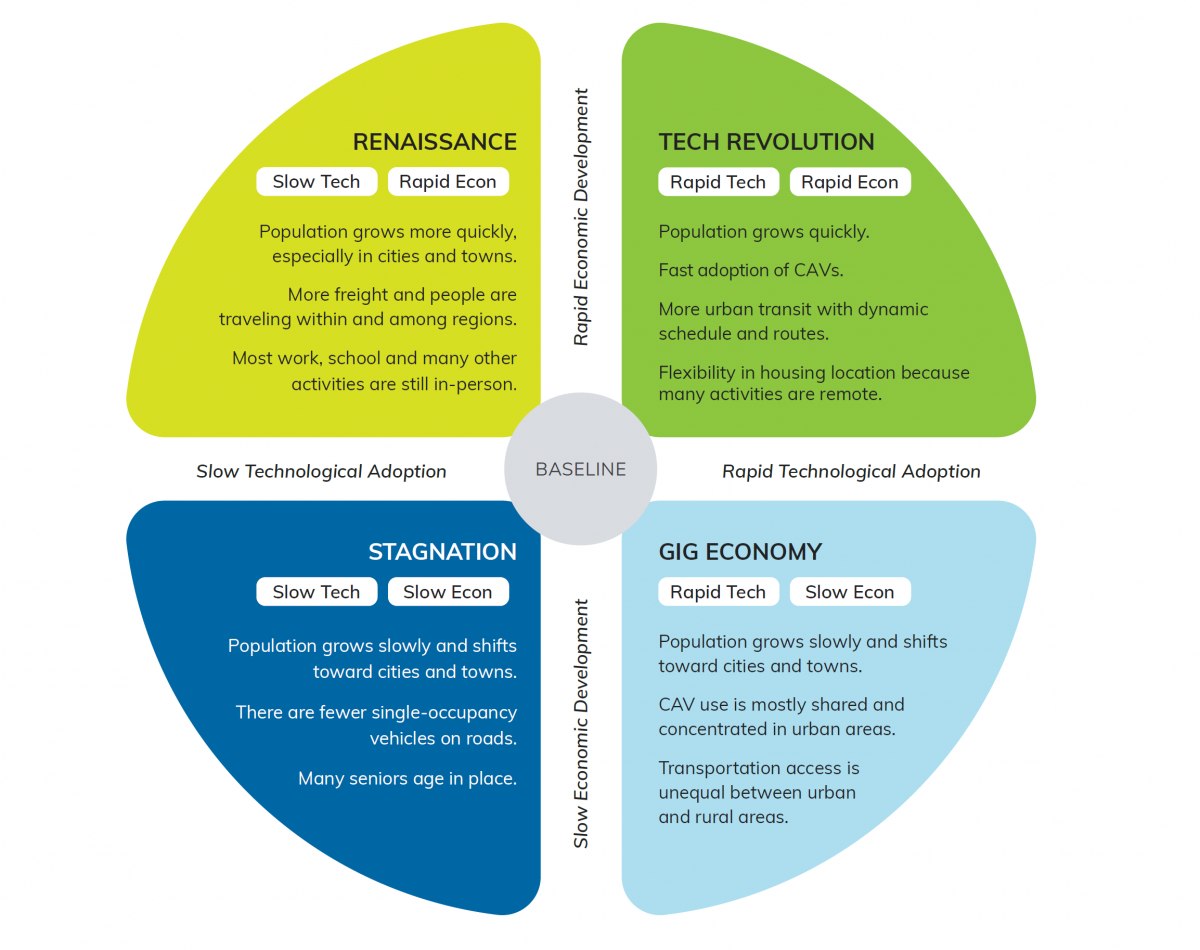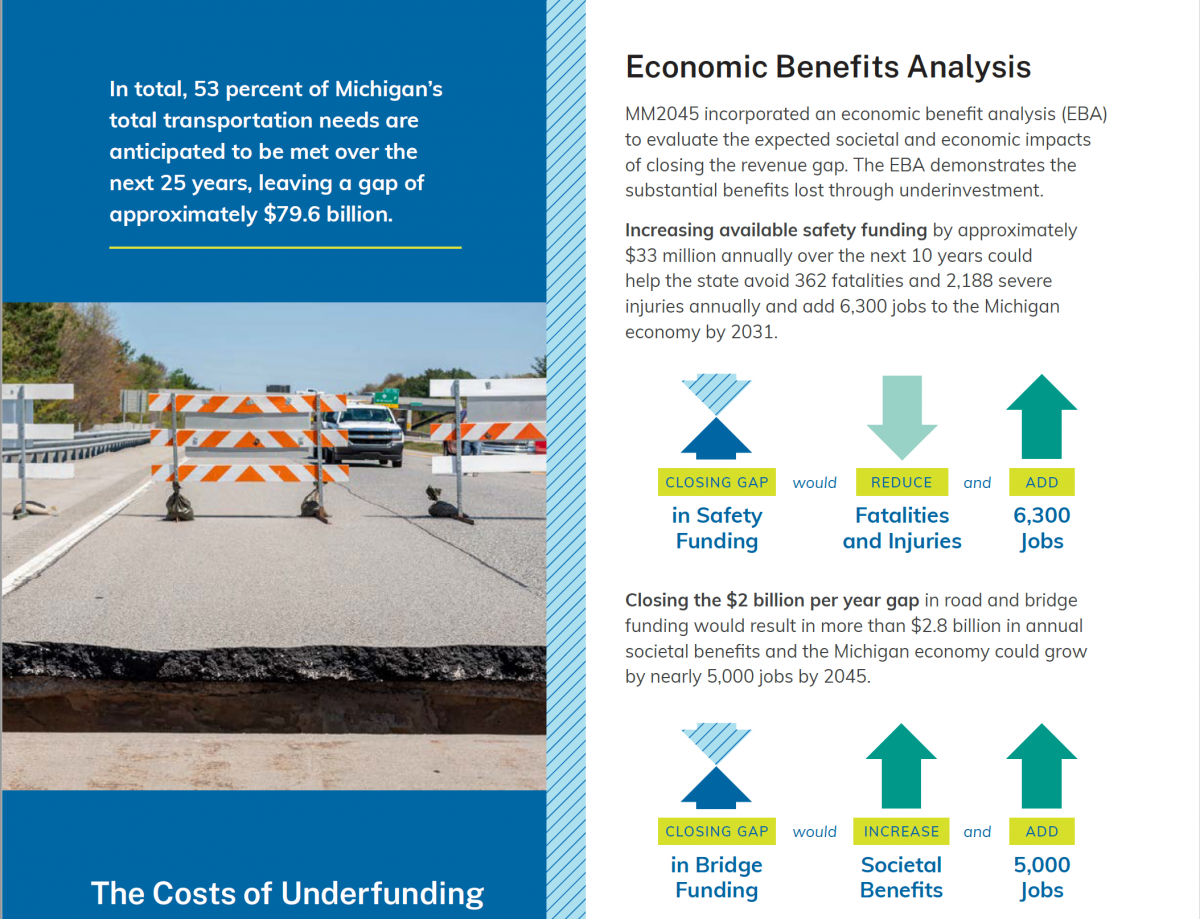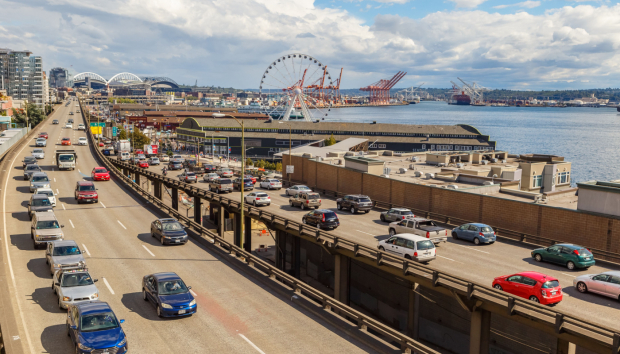

Michigan Long-Range Transportation Plan 2045
For Michigan DOT, EBP was a lead member of the team that developed the Michigan Mobility 2045 Plan - the first combined statewide Long-Range Transportation Plan, Rail Plan and Freight Plan in the country.
Phase 1. The first phase provided research and process guidelines for development of the plan, with stakeholder engagement. EBP led the review of socioeconomic trends and forecasts and developed an approach to assessing the economic benefits of initiatives in the plan. EBP provided key support for identification of activity centers and statewide corridors of significance and prepared reviews of best practices and tools for scenario planning. EBP also provided insights into the impact of new technologies and resilience planning tasks in support of these new and innovative elements of the statewide plan.
Phase 2. EBP led the baseline trends task, which outlined the influence of demographic, economic, technology, spatial development, and health trends on long-term transportation needs in Michigan. This includes development of a special research section relating near and mid-term trends from COVID-19 to potential long-term economic and transportation behavioral shifts. As part of the freight and rail plan component, EBP developed an analysis of the economic contribution of freight to major industry supply chains in the state.
EBP also led the research and implementation of alternative economic and technology futures scenarios for risk testing in the Michigan statewide travel model. This included consideration of key sources of uncertainty including the pace of economic growth, urban-rural location decisions, e-commerce, telecommuting, and the pace of CAV adoption. Exploring these alternative exogenous futures allows decision-makers within Michigan DOT to better understand risks of over- and under-investment and prepare for a dynamic future in Michigan transportation policies and investments.
Finally, EBP worked closely with MDOT staff to assess the economic benefits of planned transportation investments across the diverse multimodal MM2045 program. The analysis makes the case for sustained investment in keeping Michigan’s system in a state of repair, while supporting innovative technology-based and multimodal solutions to emerging transportation challenges.












